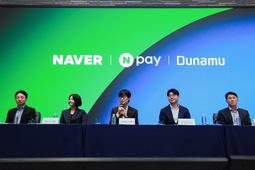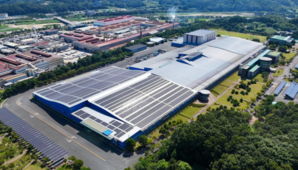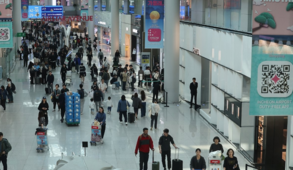
[News Space=Reporter seungwon lee] It was revealed that more than 6 out of 10 of the top 500 companies in Korea in 2024 will have a debt ratio exceeding 100%. Among individual companies, Hyosung Chemical was the only one among the companies surveyed to fall into a state of 'complete capital erosion'. The debt ratio of Hansung Motors, the official importer of imported cars 'Mercedes-Benz', reached 2,000%.
The debt ratio is the value of the total amount of debt of a company divided by the total amount of capital. If the debt exceeds the capital, the debt ratio increases, but if the capital increases through capital increase, the debt ratio may decrease. It is one of the indicators of the financial soundness of a company, and a stable debt ratio is considered to be less than 100%.
According to a survey of debt ratios conducted by the Corporate Data Research Institute CEO Score (CEO Won-man Cho) on 353 companies (excluding financial companies) that submitted financial statements among the top 500 companies in terms of sales in 2024 on April 30, 221 companies (62.6%) had a debt ratio exceeding 100%, including complete capital impairment.
Among the companies surveyed, the only one with complete capital impairment was Hyosung Chemical. Hyosung Chemical pursued the sale of business divisions to stabilize its finances due to continuous deficits caused by poor business conditions, but its finances are still far from improving. As of last year, its total capital was announced at -68 billion won.
There were five companies (1.4%) with extremely high debt ratios exceeding 1000%. These companies include Hyosung Chemical, which is suffering from capital erosion, ▲Hansung Motors (2319.6%), ▲T'way Air (1798.9%), ▲Samsung Electronics Service (1520.3%), and ▲Asiana Airlines (1240.8%).
Among these, Hansung Motors recorded the largest increase year-on-year, with its debt ratio increasing by 1,389.3 percentage points from 930.3% the previous year.
T'way Air also increased by 1,081.9% points compared to the previous year (717.0%). This is because the total capital was halved as the deficit was covered by the stock issuance excess (earnings retained) in 2023.
In addition, Asiana Airlines' debt ratio decreased by 265.5% points year-on-year, but still showed a high debt ratio of over 1000%.
Distribution company Kurly showed the largest decrease among the companies surveyed, with a debt ratio of 9641.7% points lower than the previous year. However, the debt ratio was still high at 733.6% last year. This is interpreted as a decrease in the debt ratio due to increased capital through continuous capital increases rather than financial stabilization.
Taeyoung Construction, which was in a state of capital erosion in 2023, resolved the capital erosion last year with a debt ratio of 720.2%.
Next, ▲Gangneung Eco Power 668.4% ▲Palmsco 606.8% ▲SK Rent-a-Car 601.3% ▲CJ CGV 593.0% ▲Kumho Construction 588.8% ▲SPC GFS 588.0% ▲HJ Heavy Industries 541.9% ▲Jeju Air 516.7% ▲Korea Seven 507.8% ▲Korea Electric Power Corporation 496.7% ▲Baekje Pharmaceutical 496.6% ▲BMW Korea 488.7% ▲Seojin Automotive 476.8% were listed in the top 20 companies in terms of debt ratio.
Excluding capital erosion companies, the company with the largest increase in debt ratio year-on-year was Hansung Motors, with a 1,389.3%p increase. This was followed by ▲T'way Air (↑1,081.9%p), ▲Samsung Electronics Service (↑453.6%p), ▲Kumho Engineering & Construction (↑328.6%p), ▲Palmsco (↑242.4%p), ▲E1 (↑169.5%p), ▲Hyundai Engineering (↑133.3%p), ▲LIG Nex1 (↑132.4%p), ▲Corning Precision Materials (↑120.8%p), and ▲Korean Air (↑119.2%p).
On the other hand, the company with the largest decrease in debt ratio year-on-year was Kurly (-9641.7%p). This was followed by ▲Shinsegae Construction (-742.7%p) ▲CJ CGV (-529.7%p) ▲E-Mart 24 (-366.5%p) ▲Asiana Airlines (-265.5%p) ▲HJ Heavy Industries (-206.0%p) ▲Hotel Shilla (-197.1%p) ▲SK Networks (-171.4%p) ▲Doosan Construction (-161.5%p) ▲Volkswagen Group Korea (-153.7%p).
By industry, the debt ratio of companies decreased the most, recording 136.0%, down 24.0% points from the previous year. The representative company was SK Networks, which recorded 151.2%, down 171.4% points from the previous year (322.6%).
Next, public enterprises recorded 294.3%, down 23.1 percentage points. The decrease rate was the second largest, but the debt ratio was the largest among all industries. Korea Gas Corporation recorded 432.7%, down 50.0 percentage points from the previous year (482.7%).
The distribution industry showed 141.3%, down 15.6%p from the previous year (156.9%). In addition, the debt ratios of ▲service (-2.5%p) ▲pharmaceuticals (-1.0%p) ▲daily necessities (-0.7%p) ▲food and beverage (-0.6%p) industries decreased compared to the previous year. On the other hand, ▲energy (+0.7%p) ▲automobiles and parts (+0.9%p) ▲IT/electronics (+1.5%p) ▲telecommunications (+3.7%p) ▲construction and building materials (+3.8%p) ▲petrochemicals (+5.7%p) ▲steel (+10.0%p) ▲transportation (+10.5%p) ▲holdings (+12.2%p) ▲shipbuilding, machinery, and equipment (+15.5%p) increased compared to the previous year.
























































